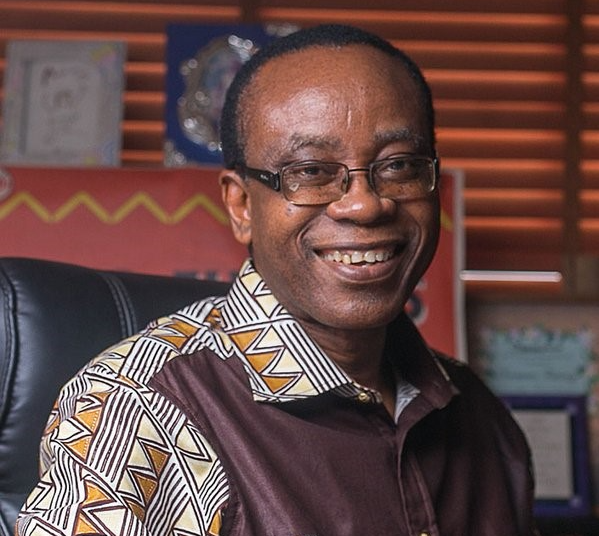For over six decades since commercial export of crude oil commenced in Nigeria, ecological devastation has been so persistent that freshwater rivers and creeks have become rivers and creeks of oil.
Aquatic resources that the Nigerians who are living in riverine areas, depend on are either no longer available or are totally contaminated.
Subjecting people to living in areas where lands, rivers and atmosphere are inescapably polluted is a clear negation of any notion of environmental justice, the director, Health of Mother Earth Foundation (HOMEF), Nnimmo Bassey said, even as he has dedicated decades of his life to fighting climate injustice especially, at the grassroots level.
To Bassey, climate issues such as gas flares are known to release into the atmosphere certain elements that cause diverse diseases including cancers, bronchitis, asthma and skin diseases and the sulphur and nitrogen oxides in the inefficient flames also cause acid rain on mixing with atmospheric moisture.
Citing an example, he said, in Ogoni, ground water has been found to have benzene at 900 levels above World Health Organisation standards, adding that, “Hydrocarbon pollution has also gone as deep as 10 metres into the soils in the same area. These ecological horrors constitute blatant environmental injustice and its perpetuation without state action is best understood as environmental racism on the part of the transnational oil companies and a disregard of the right to life and dignity of the peoples by local authorities and accomplices.”
HOMEF, which is an ecological think-tank, was established to tackling the roots of environmental injustices particularly in the areas of fossil/hunger politics, Bassey stated.
For Bassey, the main propelling inner drive in fighting climate injustice in Nigeria and Africa at large, is the quest for justice and connecting with grassroots struggles, and especially standing with marginalised, oppressed and exploited groups.
“A consciousness of the fact that things that have gone wrong did not have to go wrong, but for the human and corporate agencies that benefit from the misery of others and allow profit to trump the health of the planet and other beings we share spaces with. The colonisation of nature and the deep-seated problems of colonialism leave no room for inaction in the struggles against irresponsible exploitation.
“Added to this is the reality that dramatic ecological changes and environmental racism are widespread around the world. This reality requires that we build solidarity across borders. Building bridges through shared stories and experiences keep the fires for the work burning. This is so because we can only be stronger when we are together. The forces of oppression are basically glued to each other by their greed and creeds. The grassroots must connect struggles, sharing tears, hopes and strength,” he stated.
His fight against climate injustice has indeed paid off. “We have to become catalysts, rather than standing as the poster images of struggles. I get particularly excited when I get to see community gatherings organise, speak and lead. That is the nearest claim to achievement that we can see. Seeing exploited, marginalised, ignored and weak social groups standing strong and confronting huge corporations and public institutions can be remarkable.
“A case in point will be the resistance to the superhighway project of the Cross River State Government. It purposed to cut through critical areas of the remaining tropical rainforest in south eastern Nigeria, destroying biodiversity and displacing community people. The result of mobilisation and strong resistance mounted against this project led to its realignment and the reduction of its expanse from 10km on either sides of the road to about 75m as stipulated by law.
“A second project is building what is known as the FishNet Alliance. This alliance of fishers is protecting our waters (creaks, rivers, ocean, wetlands) against extractive activities. It is inspiring to see them taking the front seat in the struggle against harmful activities, to preserve biodiversity and healthy ecosystems for the benefit of all. So far we have units in Cameroon, Congo DR, Ghana, Nigeria, Senegal, South Africa and Togo. Credit goes to the communities and the teams we work with, not to any individual. These struggles continue due to the global geopolitical power structures that assign particularly exploitative international division of labour,” the director averred.
Background
Born on 11 June, 1958, Nnimmo Bassey studied architecture and practiced in the public sector for 10 years and thereafter continued in private practice. He was active on human rights issues in the 1980s when he served on the Board of Directors of Nigeria’s Civil Liberties Organisation.
In 1993, he co-founded a Nigerian Non-governmental organization (NGO) known as Environmental Rights Action (Friends of the Earth Nigeria) in order to advocate, educate and organise around environmental human rights issues in Nigeria.
Since 1996, Bassey and Environmental Rights Action led Oil watch Africa and, beginning in 2006, also led the Global South Network, Oil watch International, striving to mobilize communities against the expansion of fossil fuels extraction.
He has served in the committees of both Oil watch International and the regional arm, Oil watch Africa since inception. Oil watch Africa has membership in Nigeria, Chad, Cameroon, Congo Democratic Republic, Ghana, Uganda, South Africa, Togo, Kenya, Swaziland, Mozambique, Mali, Sudan, South Sudan and others. The Network works to resist destructive oil, gas and coal extraction activities. It demands an urgent shift from the dominant petroleum-fueled civilization.
In 2011, Bassey founded the Ecological think tank, the Health of Mother Earth Foundation promoting environmental climate justice and food sovereignty in Nigeria and Africa.
He led Friends of the Earth International from 2008 to 2012 and for two decades, was the executive director of Environmental Rights Action.
Achievements
Bassey has authored books on the environment, architecture and poetry. He was named Time Magazine’s Hero of the Environment in 2009 and was a co-recipient of the 2010 Right Livelihood Award also known as the “Alternative Nobel Prize”. In 2012, he received the Rafto Human Rights Award. He obtained his Honorary Doctorate degree, at University of York, UK.




